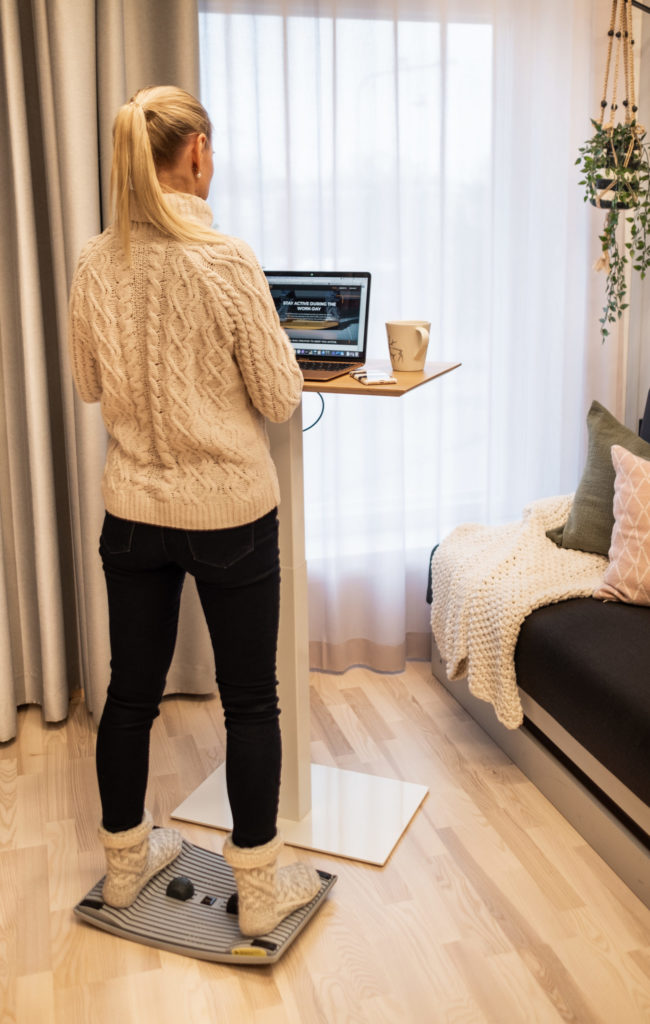Ergonomic products provide essential support for college students spending long hours studying. The most beneficial items include adjustable laptop stands to maintain proper eye level, ergonomic chairs for back support, external keyboards and mice to reduce wrist strain, and balance boards to encourage movement during study sessions. These tools help prevent common issues like neck pain, back discomfort, and eye fatigue that can impact academic performance. For students with limited space and budgets, portable options like compact laptop stands and attachable lumbar supports offer practical solutions that adapt to dorm rooms and shared study spaces.
What makes ergonomic products essential for college students?
College students face unique physical challenges that make ergonomic products particularly important. The combination of long study sessions and typically poor-quality furniture in dorms and libraries creates a perfect storm for developing musculoskeletal issues.
Most college students spend 8-12 hours daily hunched over laptops, textbooks, and notes. This prolonged posture leads to common problems including forward head position, rounded shoulders, and compressed spine. The temporary discomfort often experienced during intense study sessions can develop into chronic issues if not addressed.
Dorm furniture is rarely designed with ergonomics in mind. Standard-issue desks and chairs are typically one-size-fits-all, forcing students into uncomfortable positions. Meanwhile, the weight of textbooks and laptops in backpacks creates additional strain on the shoulders and back.
The academic consequences are significant. Pain and discomfort directly affect student focus, learning capacity, and overall academic performance. Proper ergonomic support helps maintain better posture in the classroom and during independent study, allowing students to concentrate on learning rather than physical discomfort.
What are the most important ergonomic products for a student desk setup?
The foundation of an ergonomic student desk setup includes five key products that work together to maintain proper posture and reduce strain. Each addresses specific ergonomic challenges faced during long study sessions.
An adjustable laptop stand is perhaps the most crucial element. It elevates your screen to eye level, preventing the hunched-over posture that strains your neck and upper back. When your screen sits at eye level, you naturally maintain better spinal alignment.
External keyboards and mice allow you to type and navigate with your arms in a neutral position while your screen remains at the proper height. Look for keyboards with minimal slope and mice that fit your hand size comfortably.
An ergonomic chair provides proper lumbar support and encourages good posture. Even budget-friendly models with adjustable height and basic lumbar support offer significant benefits over standard dorm chairs.
Proper lighting reduces eye strain during late-night study sessions. A desk lamp with adjustable brightness helps prevent the squinting and hunching that often occurs when working in poor lighting conditions.
Document holders position reading materials at eye level beside your screen, preventing the constant up-and-down neck movement that occurs when referencing materials flat on your desk.
How can students improve ergonomics in limited dorm spaces?
Small dorm spaces present unique ergonomic challenges, but several space-efficient solutions can transform even the tightest quarters into ergonomic-friendly study areas. The key is selecting multi-functional products that adapt to your existing furniture.
Portable laptop stands that fold flat when not in use provide proper screen height without permanently claiming desk space. Many options weigh less than a pound and can be carried in a laptop bag for use in libraries and classrooms.
Attachable cushions convert standard dorm chairs into more ergonomic seating. Look for lumbar supports that strap onto existing chairs and can be removed when needed.
Bed desks with adjustable heights and angles allow you to study comfortably when desk space isn’t available. Many include cooling fans and storage compartments for added functionality.
Wall-mounted or clamp-on desk lamps free up valuable desk surface while providing proper lighting. Models with flexible arms let you direct light exactly where needed without taking up space.
Vertical storage solutions like monitor stands with built-in drawers help organize study materials while elevating your screen to the proper height, maximizing limited desk space.
What ergonomic products help students stay active while studying?
Incorporating movement into study sessions is vital for maintaining energy and focus. Several ergonomic products specifically designed to promote active studying can help counteract the negative effects of prolonged sitting.
Balance boards for improved posture and focus create subtle movement while standing at a desk or counter. This gentle motion engages core muscles, improves posture, and increases circulation, helping you stay alert during long study sessions.
Standing desk converters transform any standard desk into a height-adjustable workstation, allowing you to alternate between sitting and standing. Most models adjust in seconds and sit on top of existing furniture.
Anti-fatigue mats provide cushioned support when standing, reducing pressure on feet, knees, and back. The slight instability of certain designs encourages subtle movements that keep muscles engaged.
Desk pedals or under-desk ellipticals allow for leg movement while seated, improving circulation and providing light cardiovascular activity during study sessions. Many compact models fit easily under standard dorm desks.
Active sitting chairs like wobble stools or kneeling chairs engage core muscles and promote better posture through constant micro-movements, even in seated positions.
How can students prevent back and neck pain while using laptops?
Laptops present significant ergonomic challenges because their design inherently forces users to choose between proper screen height or keyboard position. Several specialized products help solve this fundamental problem.
Laptop stands with ergonomic height adjustment with adjustable height and angle settings are essential for positioning your screen at eye level. The top of your screen should align with or sit slightly below eye level to maintain neutral neck positioning.
External keyboards allow you to type with your arms and wrists in a neutral position while your screen remains elevated. Compact wireless keyboards are particularly useful for students with limited desk space.
Ergonomic mice reduce wrist strain by promoting a more natural hand position. Vertical mice, in particular, place your hand in a “handshake” position that reduces forearm twisting.
Posture correctors and back supports provide physical reminders to maintain proper alignment. Even simple lumbar cushions can significantly improve seated posture during long study sessions.
Regular movement breaks are crucial regardless of your setup. Set a timer to stand, stretch, and move every 30 minutes to prevent muscle tightness and improve circulation.
What ergonomic investments provide the best value for college students?
For students balancing tight budgets with ergonomic needs, certain products offer exceptional value-to-benefit ratios. These items provide significant improvements in comfort and productivity without breaking the bank.
A quality laptop stand tops the list for value. For around £20-40, this single product corrects the fundamental ergonomic issue of screen height, immediately improving neck positioning and upper back strain.
External keyboards and mice complete the laptop ergonomic triangle. Budget-friendly options starting at £15-30 allow proper arm and wrist positioning while your screen remains at the correct height.
Lumbar support cushions transform existing chairs at minimal cost. Starting at £15, these attachable supports provide critical lower back positioning that many expensive chairs offer.
Balance boards promote movement and active standing while studying. While ranging from £30-300, their versatility and portability make them excellent long-term investments that can be used throughout your academic career.
Adjustable standing desk solutions for students help prevent the hunched posture.
At Gymba, we understand the unique challenges students face in maintaining proper posture and focus during long study sessions. Our solutions are designed to fit seamlessly into student life, supporting your academic journey with products that promote movement and better ergonomics without requiring complete workspace transformations.

